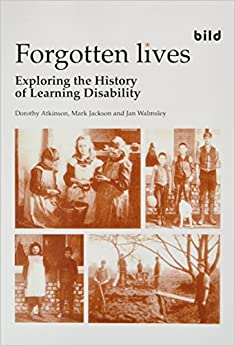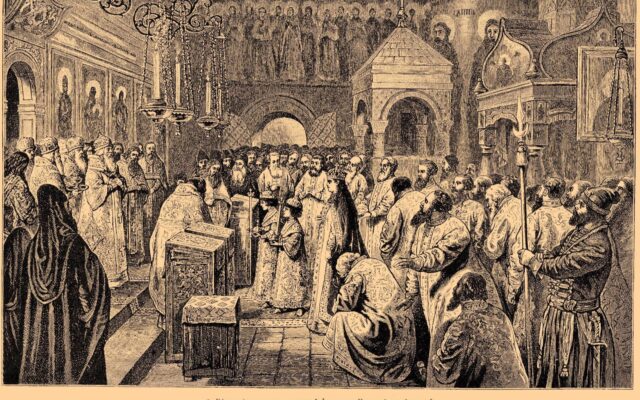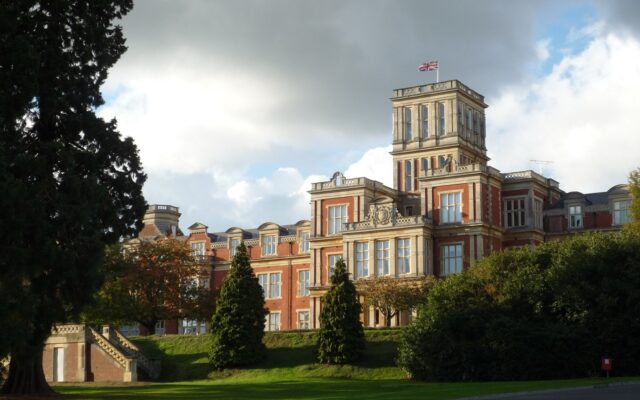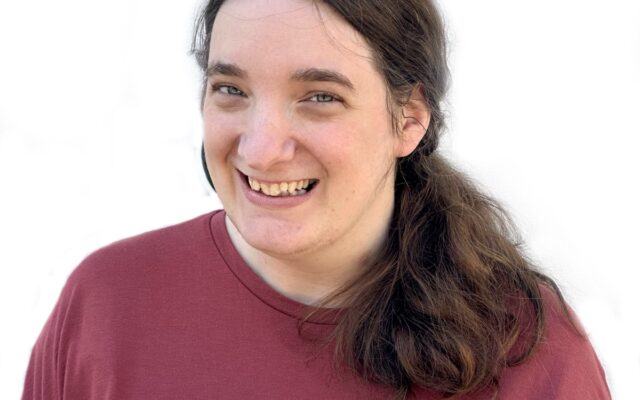For decades, the history of learning disability was not given the recognition it deserved. It was subsumed into related topics such as the history of eugenics or of mental health, and historians tended to rely solely on documentary evidence to write histories of policies or institutions.
Those with experience of living with a learning disability were sidelined and silenced or, at best, portrayed as merely victims of an uncaring or cruel system. This reflected how those with learning disabilities were perceived – as people who were unable to articulate their experiences or to understand them, and who needed to be spoken for rather than listened to. This began to change in the 1970s with the burgeoning disability rights movement. Speaking Up events gave people with learning disabilities the chance to speak for themselves and tell their life histories. This was followed in the 1980s with the formation of self-advocacy groups such as People First, run for and by people with learning disabilities.
These self-advocacy groups gave people the chance to share own experiences. In doing so, they began to reclaim their life stories and challenge the portrayal of themselves as victims or faceless case studies. They revealed themselves to be survivors – actively resisting the policies and institutions that had dominated their lives.
In 1994, two Open University academics founded the Social History of Learning Disability Research Group (SHLD). Shocked by the lack of research into the history of learning disability services (for example day centres) and the absence of stories from learning-disabled people themselves, Jan Walmsley and Dorothy Atkinson set up the SHLD to provide a forum where people could come together and share research and stories.
People with learning disabilities were invited to all SHLD conferences, where they chaired panels and gave papers about their research and life histories, alongside a growing number of academics working on this strand of history.
Most importantly, they challenged other delegates if they believed something had been misrepresented, thus cementing their identity as the true experts in their history.
In the same year as she co-founded the SHLD, Atkinson met Mabel Cooper, a former patient of St Lawrence’s Hospital in Surrey, who was then chair of People First London. Cooper had a strong desire to tell her life history. Using official records to fill in any gaps, they worked together to bring Cooper’s story to a wider audience. It was published in Forgotten Lives: Exploring the History of Learning Disability in 1997 – an experience that was both emotional and empowering. Cooper inspired many others to tell their stories, and shared hers with other groups to promote empathy and understanding.
Other books have followed, mostly published by BILD (as was Forgotten Lives), each redrawing the relationship between the researcher and researched in a quest to facilitate emancipatory rather than participatory research. Collaboration between academic historians and people with learning disabilities on an increasingly equal footing is both fruitful and important. People bring their own experiences to stand alongside the historical documentary evidence, often from official sources such as councils and institutions and, in so doing, challenge and disrupt these accepted narratives, revealing something far more nuanced and complex.
Their stories also serve as a corrective to excessive claims of progress that were particularly prominent with the closing of the long-stay institutions, reminding historians and policy-makers alike that, while much has changed, much has stayed the same and things still need to change. In this way, people with learning disabilities and historians are working cooperatively as historian activists, coming together to tell their stories and influence policy. The lives of people with learning disabilities as told by them are, quite rightly, central to these works, and historians have learnt how to adapt their practices to accommodate these experts so their stories are properly told.
The next step, as seen by people such as Atkinson and Walmsley, is to include more accounts from other groups with a role in the history of learning disabilities. Witness to Change: Families, Learning Difficulties and History (2005) highlighted how much could be learnt from families, particularly in moving away from a history dominated by the long-stay institution.
The voices of social workers, nurses and other practitioners also need to be heard to give justice to the rich, complex nature of the history of learning disabilities.
Further reading
Open University Social History of Learning Disability (SHLD) Research Group. https:// tinyurl.com/y4jw7qny
Open University. Mabel’s Story. https://tinyurl. com/yyhakr32
Atkinson D, Jackson M, Walmsley J, eds (1997) Forgotten Lives: Exploring the History of Learning Disability. Kidderminster: BILD
Atkinson D, McCarthy M, Walmsley J et al, eds. (2000) Good Times, Bad Times: Women with Learning Difficulties Telling Their Stories. Kidderminster: BILD
Brigham L, Atkinson D, Jackson M, Rolph S, Walmsley J, eds (2000) Crossing Boundaries: Change and Continuity in the History of Learning Disability. Kidderminster: BILD.
Rolph S, Atkinson, D, Nind M, Welshman J, eds (2005) Witness to Change: Families, Learning Difficulties and History. Kidderminster: BILD
• Links to more on learning disability history can be found at www.cl-initiatives.co.uk/?p=6494






